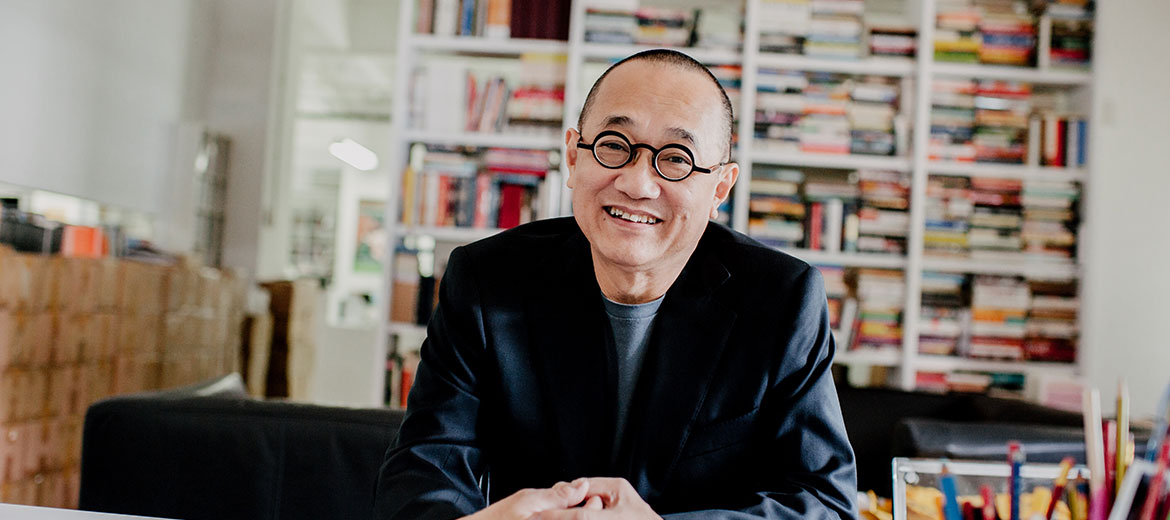On a muggy Friday afternoon, Edmund Wee is spinning a yarn in an office unit tucked away in one of many industrial parks scattered across Singapore’s heartlands. The founder of local publishing house Epigram Books is adamant that a new wave of disgruntled Singaporeans are turning their hand to writing novels to voice their frustrations at the order of the day.
“The person that is totally happy and just wants to relax will never write,” he says from atop a high stool, his face illuminated by piercing LED lights that hang from an exposed ceiling. “As a whole, you can say Singapore is part of the first world, but there is a lot of dissatisfaction here – just like in the West with Brexit and Trump… So now you have people who want to be full-time writers – and I think, in the future, even more people will write.”
In the minds of the local literati at least, Singapore is in the throes of a literary renaissance – one that can be traced back to the late 1990s, when people realised fewer and fewer pupils were studying literature, according to Angelia Poon, an associate professor of English literature at Singapore’s National Institute of Education.
“Once the problem was highlighted, there was a reaction not only from teachers, but also curriculum planners in the Ministry of Education, writers themselves and other people who loved literature and felt that this was something that needed to be addressed,” she says. “The scene now is quite vibrant: there’s quite a number of people writing and new works coming out every year.”
Wee, who is in his late 60s but could easily be 20 years younger, is one of the “people who love literature” to whom Poon is referring. A former journalist and designer who spent 12 years at the state-owned Singapore newspaper the Straits Times, Wee established Epigram Books in 2011 when his design business began slowing down. Four years later, he set up an annual fiction prize for Singaporean novelists to encourage interest in the form, awarding 25,000 Singapore dollars (USD18,375) to the winner.

Out of the 72 entries received in the first year, four were shortlisted and published. All four sold out their initial run of 1,000 copies within two or three months, a milestone that normally takes bestsellers a year to reach in Singapore, according to Wee.
“Until recently, the Singapore novel was a rare thing. That has changed,” says Peter Schoppert, president of the Singapore Book Publishers Association. “Epigram’s Fiction Prize has given the form a big boost, and other publishers have stepped up their game as well.” However, while more Singaporeans are writing books, few read them.
A 2015 survey by the country’s National Arts Council (NAC) found that only 44% of Singaporeans had read at least one literary book during the past year and that only one in four Singaporeans had read literary books by Singaporean writers, a deeply entrenched discriminatory attitude that falls on the shoulders of multiple parties, according to Wee.
“For many years, it has been in Singaporeans’ minds that foreign books are better and local books not so good,” he says. “I blame everybody. I blame the schools because literature is not compulsory. I blame the bookshops. I blame the press because they still want to interview famous international authors instead of local authors.”
But Wee has a plan. Earlier this year, to get more Singaporeans reading books written by local authors, he opened up a shop in the UK. It sounds paradoxical but, in Wee’s eyes, it isn’t. Only books that are published in the UK are eligible for the Man Booker Prize – the world’s most celebrated literary award – and Wee believes that a Singaporean winning the prize may be all it takes to stop Singaporeans from overlooking local writers.

“I’ve been running this company now for six years. I’ve reached practically the bottom of my pocket. I’ve really got no money left,” Wee says. “The last throw of the dice is opening in London. If London flops, then I think it’s not going to work.”
Economics also played its part in Wee’s decision to establish a UK imprint. While Singapore’s population is a little over five million, and not all of its citizens speak English as a first language, the UK is home to more than 65 million potential customers. And that is only the tip of the iceberg when it comes to the advantages enjoyed by Western publishers, according to Schoppert.
For one, Singapore allows parallel imports, which means that if a Singaporean publisher has sold the rights for a local title to an overseas publisher, the overseas edition may find its way back to Singapore and compete with the original edition. Given the larger economies of scale they enjoy, overseas publishers can actually afford to undercut their local counterparts.
To date, Wee’s UK imprint has published six books, with two more scheduled for release later this month. While he has only sold 100 copies of each title to UK bookstores so far, he remains “convinced” that his UK venture will be a success and hopes that his quixotic quest for Booker recognition will bear fruit. “A Singaporean novel doesn’t even have to win the Booker prize, but at least get shortlisted, mentioned in the same breath,” says Wee. “I hope that if that happened, that would be a turning point for people to see that Singaporean books aren’t that bad at all.”


